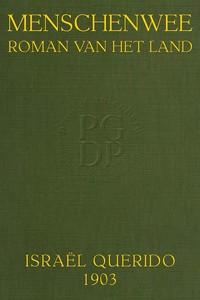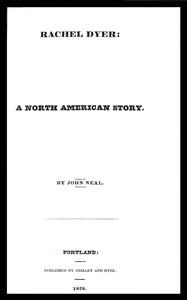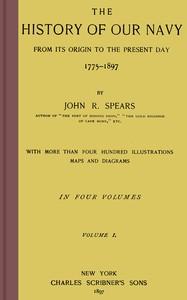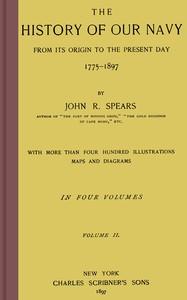Read this ebook for free! No credit card needed, absolutely nothing to pay.
Words: 70098 in 31 pages
This is an ebook sharing website. You can read the uploaded ebooks for free here. No credit cards needed, nothing to pay. If you want to own a digital copy of the ebook, or want to read offline with your favorite ebook-reader, then you can choose to buy and download the ebook.
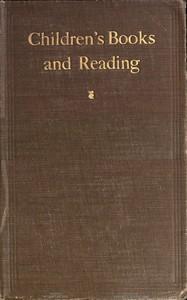

: Children's books and reading by Moses Montrose Jonas - Children Books and reading; Children's literature Bibliography; Children's literature History and criticism
INTRODUCTORY NOTE v
INTRODUCTORY NOTE
In the course of preparing the material for the following sketch, I was brought into very agreeable relations with many persons whose practical experience in library work proved of exceptional value to me. I wish to take this means of thanking Miss Annie Carroll Moore, Supervisor of Children's Rooms in the New York Public Library, and Mr. C. G. Leland, Supervisor of School Libraries and member of the New York Board of Education, for every encouragement and assistance.
To Miss Caroline M. Hewins of the Hartford Public Library, Miss Frances Jenkins Olcott of the Pittsburgh Carnegie Library, Miss Caroline Burnite of the Cleveland Public Library, the Reverend Joseph McMahon, a member of the Advisory Board of the New York Public Library, Mr. Frederic W. Erb of the Columbia University Library, and to Mr. Tudor Jenks, I am indebted for general advice.
In special lines, I had the privilege of consultation with Mr. Frank Damrosch, Mr. C. Whitney Coombs, and Miss Kate Cohen for music; Miss Emilie Michel for French; and Miss Hedwig Hotopf for German.
The librarians of Columbia University, the Pratt Institute, and the Astor Library have rendered me marked service for which I am grateful.
Finally, I wish to fix the responsibility for whatever statements are made in the way of criticism upon myself; this is only due to those whose extensive knowledge of the subject is being exerted in a professional capacity; and to those many authors whose books and papers are indicated in the bibliographical notes.
M. J. M. NEW YORK, August, 1907.
CHILDREN'S BOOKS AND READING
The field of children's books is by no means an uninterrupted host of dancing daffodils; it is not yellow with imperishable gold. In fact, there is a deplorable preponderance of the sere and yellow leaf. Yet there is no fairer opportunity for the writer than that which offers itself in the voluntary spirit of a boy or girl reader. Here are to be met no crotchets or fads, no prejudices or unthinkable canons of art. Because the body is surcharged with surplus energy necessary to growth, because the mind is throwing out delicate tendrils that foreshadow its potential future, one realises how vital is the problem of children's reading, how significant the manner in which it is being handled.
The whole matter simply resolves itself into a difference in viewpoint between the past and present. Smile as we must over the self-conscious piousness of early juvenile literature, it contained a great deal of sincerity; it did its pioneer work excellently well. To the writer of children's books, to the home, where one essential duty is personal guidance, to the librarian whose work is not the science of numbers, but a profession of culture-distributing, some knowledge of the past harvests from this field would appear indispensable. For the forgotten tales of long ago, the old-fashioned stories represent something more than stained pages and crude woodcuts, than stilted manners and seeming priggishness; they stand for the personal effort and service of men and women striving with staunch purpose in the interests of childhood, however mistaken their estimates of this childhood may have been. These books, to the library, are so much fallow material as a practical circulating proposition, but they represent forces significant in the history of children's books. I would much rather see a librarian fully equipped with a knowledge of Miss Edgeworth's life, of her human associations, together with the inclinations prompting her to write "The Parent's Assistant," than have her read a whole list of moral tales of the same purport and tone.
The immediate problem, therefore, necessitates a glance at this field of children's literature, and some knowledge of its essential details. It involves a contact with books of all grades; it calls into play, with the increasing number of libraries, and with the yearly addition of children's rooms, a keen discerning judgment on the part of the librarian, not only as to child nature, but as to the best methods of elimination, by which bad books may be separated from good, and by which the best may preponderate. But the librarian is not the only factor; the parent and the writer also come into account. They, too, must share a responsibility which will be more fully determined later on, but which now means that they both owe the child an indispensable duty; the one in giving to the growing boy or girl most intelligent guidance along the path of fullest development; the other in satisfying this need--not in deflecting juvenile taste by means of endless mediocrity and mild sentimentalism. It is an unfortunate circumstance that the effects of mediocrity are longer-lived than the immediate evil itself.
Free books android app tbrJar TBR JAR Read Free books online gutenberg
More posts by @FreeBooks
